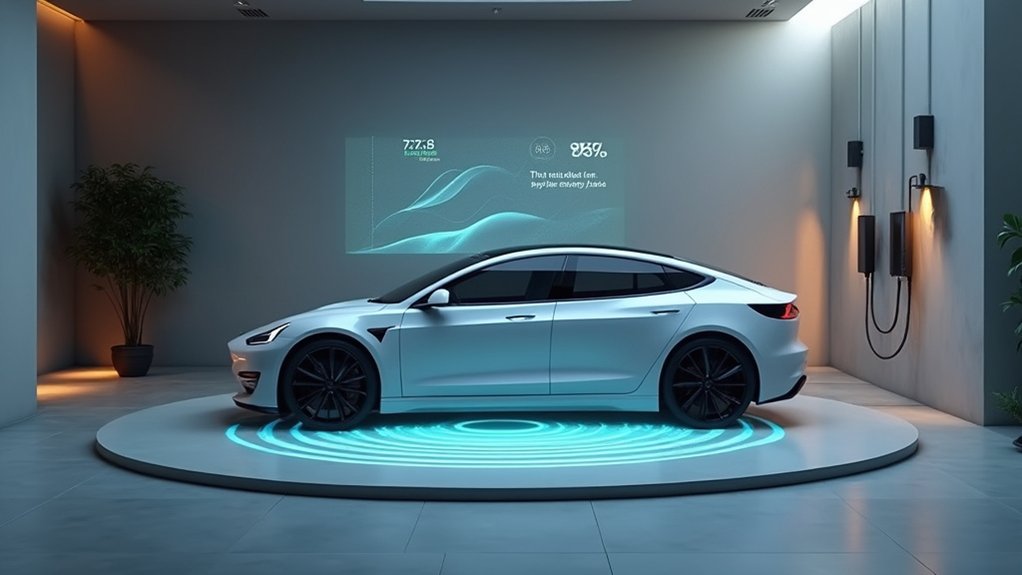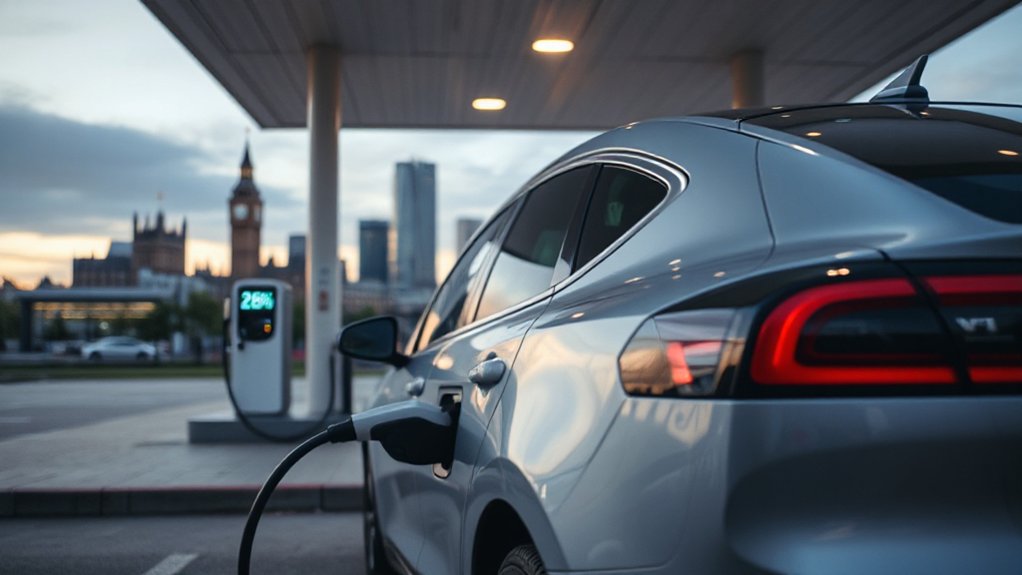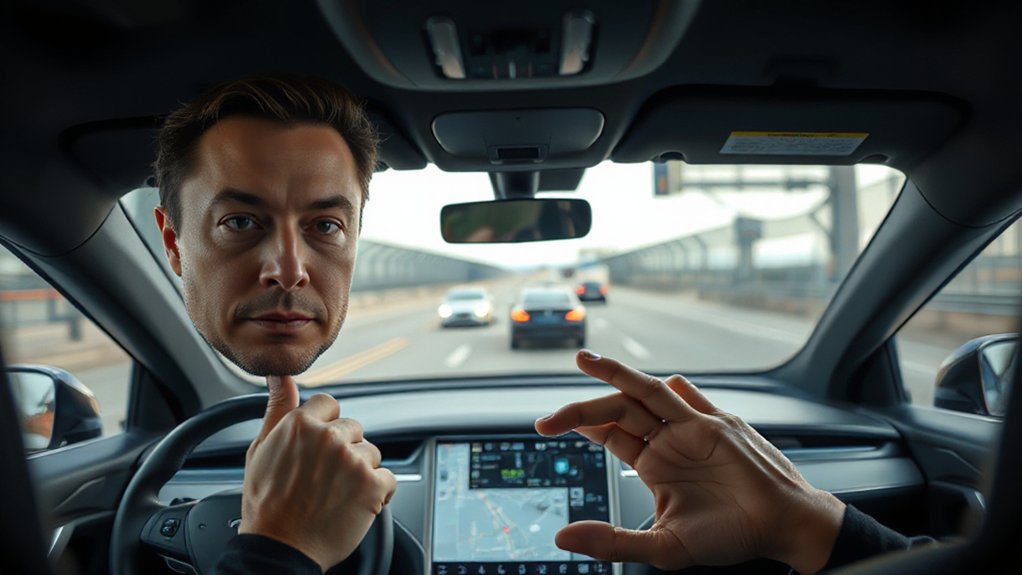While cables and cords have dominated EV charging since inception, they’re becoming obsolete faster than last year’s smartphone. Recent testing has revealed an astonishing 88% reduction in energy loss compared to standard wireless charging methods, proving that the future of EV charging isn’t tethered to anything.
The latest wireless EV charging systems now achieve up to 94% efficiency. That’s right—nearly the same as those clunky cables everyone’s been lugging around. This efficiency closes the historical gap between wired and wireless systems, while simultaneously cutting electricity costs for EV owners. Less energy wasted means more money saved. Simple math.
These systems work through magnetic resonance or inductive coupling, transferring energy from charging pads to vehicle receivers. No plugs. No cables. Just park and charge. The technology complies with SAE J2954 standards, ensuring you can use different chargers with different vehicles without compatibility nightmares. Leading manufacturers like WiTricity and Plugless Power are driving innovation in this rapidly evolving sector. Power options now extend to 22kW, making wireless charging just as quick as many plug-in systems. Who said convenience had to come with compromises?
Market analysts project the wireless EV charging sector will grow by over 30% annually through 2025, which they’re calling the “breakthrough year” for commercial deployments. Major automotive companies aren’t sleeping on this—they’re pouring money into development faster than you can say “plug-in.” The WAWT report indicates major OEM announcements are expected in 2025, signaling industry-wide adoption of this technology.
Integration with AI-enabled smart charging systems allows for dynamic load balancing and scheduling optimization. Users can exploit off-peak electricity rates while sipping coffee at home, never touching a single cable. The technology plays nice with solar and battery storage systems too. This integration helps maximize clean energy utilization and supports the broader transition to net zero emissions.
Perhaps the biggest win is the pure simplicity. Park, walk away, come back to a charged vehicle. No more fumbling with cables in the rain or forgetting to plug in. Automated systems prevent human error—because let’s face it, humans are pretty error-prone.
The future of EV charging isn’t just wireless; it’s effortless.
References
- https://motorwatt.com/ev-blog/trends/how-wireless-ev-charging-works
- https://wawt.tech/2025/06/03/wawt-insights-how-ev-charging-is-getting-easier-in-2025/
- https://witricity.com
- https://www.evcandi.com/wireless-inductive-charging
- https://www.greenmountainenergy.com/en/blog/electric-vehicle/electric-vehicle-technology-innovations-2025









